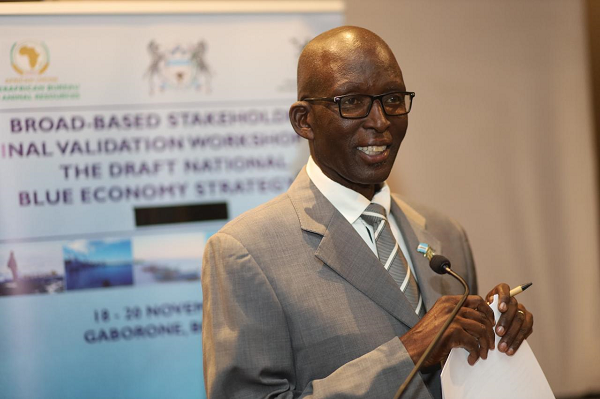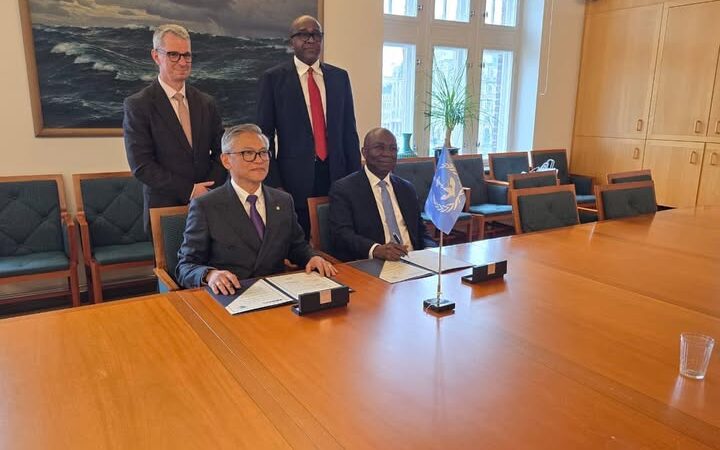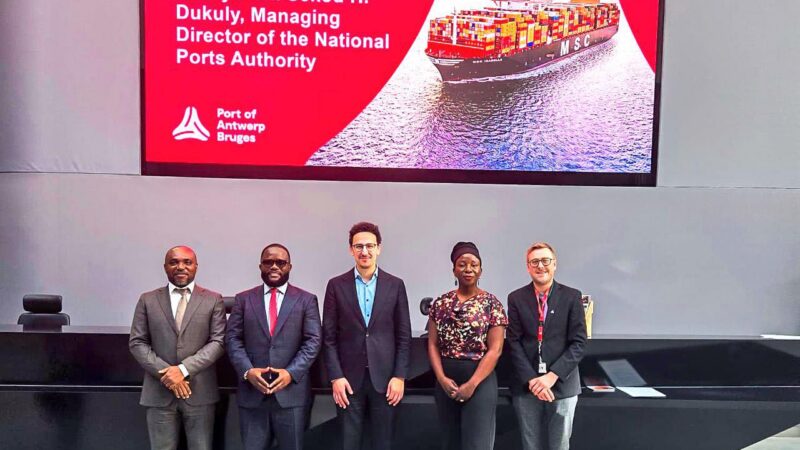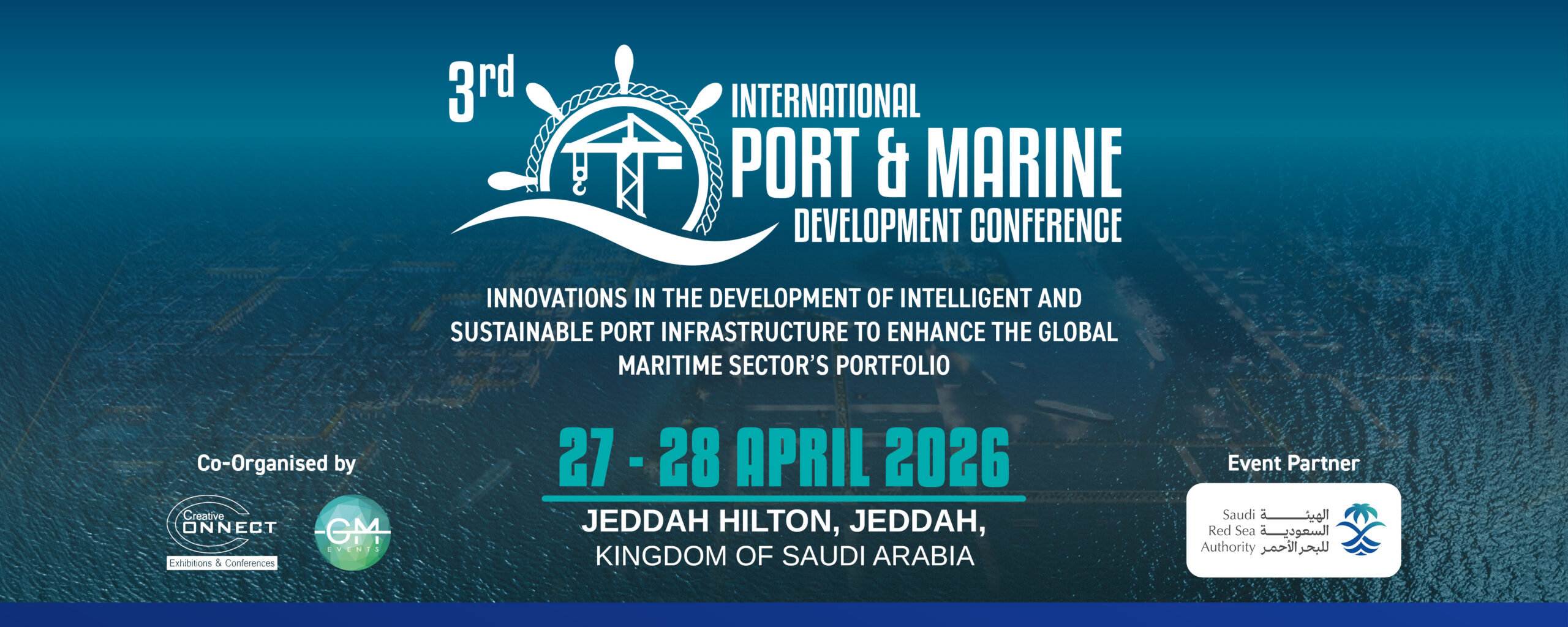Botswana Hosts Stakeholders’ Validation Workshop for National Blue Economy Strategy
A three-day validation workshop with a wide range of stakeholders concluded on November 20, 2024, marking a major milestone in Botswana’s progress towards draughting its National Blue Economy Strategy. Key representatives from government, regional bodies, development partners, and experts gathered at the event, which was hosted by the Ministry of Lands and Agriculture and facilitated by AU-IBAR with funding from Norway. The strategy aimed at sustainably harnessing the nation’s aquatic resources was refined and validated.
Ms. Nancy Chengeta, Permanent Secretary of Botswana’s Ministry of Lands and Agriculture, welcomed participants to the session. She commended AU-IBAR for assisting with the strategy’s creation and emphasised the potential benefits of a sustainable blue economy for Botswana and its aquatic habitat. Ms. Chengeta emphasised the significance of a comprehensive strategy to the blue economy, ensuring that marginalised groups, such as women, youth, and persons with disabilities, can profit from the country’s aquatic resources.
Despite having limited water bodies, Ms. Chengeta noted that Botswana’s blue economy held immense potential for food security, livelihoods, and economic development, particularly for rural communities living near aquatic resources. She also reflected on a similar workshop held earlier in March 2024, where initial feedback was gathered, and expressed optimism that the current session would help finalize the draft strategy.
Mr. Obinna Annozie, Coastal Marine Ecosystems Specialist at AU-IBAR, delivered remarks on behalf of Dr. Huyam Salih, Director of AU-IBAR. He spoke about the importance of the blue economy in achieving the African Union’s Agenda 2063, particularly its goals of inclusive growth and sustainable development. Mr. Annozie thanked Botswana’s government and its people for their hospitality and recognized the support of development partners, such as Norway and Sweden, in advancing the blue economy agenda across the continent.
He highlighted AU-IBAR’s commitment to raising awareness and building capacity on blue economy principles in 11 African nations, including Botswana. He encouraged stakeholders to actively engage in the process, ensuring that the strategy reflected their collective vision for a sustainable and inclusive blue economy.
Dr. Motseki Hlatshwayo, Technical Advisor for Fisheries at the Southern African Development Community (SADC) Secretariat, acknowledged the interconnectedness of the region’s aquatic ecosystems and their significant potential for sustainable economic development. He outlined the challenges that hindered the growth of the blue economy, including overfishing, pollution, and climate change, and called for increased investment in blue economy sectors to address these issues.
Dr. Hlatshwayo emphasized the need for clear indicators and benchmarks to track the success of the blue economy strategy. He highlighted SADC’s commitment to regional collaboration, noting that the blue economy was a priority identified during the SADC Extraordinary Summit of 2015.
Dr. Micus Chimbombi, Botswana’s Minister of Lands and Agriculture, formally opened the workshop, recognizing the importance of the National Blue Economy Strategy for Botswana’s future. He expressed his appreciation to AU-IBAR and development partners for their continued support and underscored the strategy’s alignment with Botswana Vision 2036, the SDGs, and the African Union’s Agenda 2063.
Dr. Chimbombi acknowledged the challenges of limited water bodies in the country but reassured stakeholders that Botswana was committed to overcoming these obstacles by leveraging sustainable blue economy initiatives. He invited international guests to extend their stay in the country and engage with local communities, further strengthening Botswana’s blue economy efforts.
The meeting focused on working group discussions to review the thematic areas of the strategy, with stakeholders analyzing and refining the provisions for the national strategy, implementation plans, and governance coordination mechanisms. On Day 3, the final drafts of the strategy, implementation plans, and governance mechanisms were presented and validated through participant discussions.
An essential step towards ensuring the long-term viability and equitable use of Botswana’s aquatic resources, the validation workshop is a key component of the country’s blue economy strategy. Communities relying on aquatic ecosystems for their livelihoods stand to benefit from the strategy’s ability to address difficulties, boost economic growth, and incorporate varied stakeholder perspectives. Botswana is laying the groundwork for a prosperous blue economy via persistent cooperation and dedication.
Source : AU-IBAR






